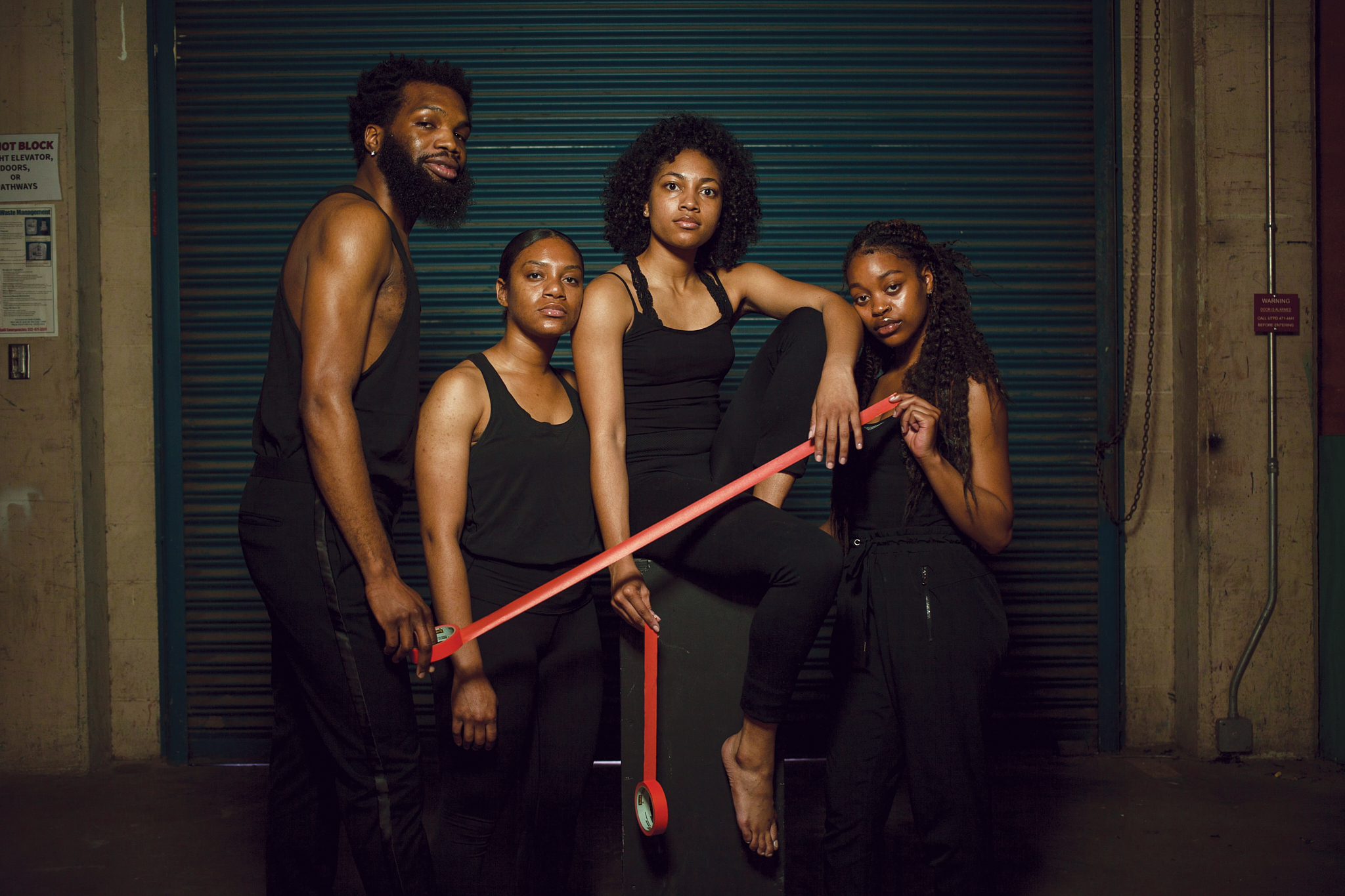The Cohen New Works Festival Offers Students the Opportunity to Experiment With Their Art

Professor Kirk Lynn, head of the playwriting program at The University of Texas at Austin, often tells fellow faculty members that if they want to know what performance art will look like in the next decade, they should check out the Cohen New Works Festival.
The student-run biennial event is a production of the College of Fine Arts Department of Theatre and Dance, showcasing new works across a broad array of disciplines, such as dance, music, theater, and film. Founded in 2001, Cohen New Works is the largest festival in the country focusing on new student work. This year, it ran from April 3 to April 7 and featured about 40 works that were meticulously selected by an all-student committee.
Lynn says working as one of five faculty advisors of the festival is akin to witnessing the rise of the next Anton Chekhov.
“Those people are students right now, making the work that soon will be the new classics we’ll study for 100 years,” Lynn says.
Braxton Rae, a third-year MFA directing candidate at UT, first participated in the festival in 2021 with “Videoessay,” a 40-minute YouTube-style report exploring doctor-patient confidentiality and ethics in video game design. Even though the festival was virtual because of the COVID-19 pandemic, Rae says he felt a huge energy that made him want to become more involved this cycle.
As the artistic producer of the 2023 festival, Rae has a hand in making all aspects of the production run smoothly, from the application process through to the end of the weeklong event. It’s a heavy lift, Rae says, but it’s worth it for those exhilarating moments, like when the organizing team had their first meeting after they had chosen all the pieces, and it finally started to become real.
“I remember the first day we all met with all of the projects together in one room, and I was like ‘Ah, this is so cool,’” Rae says. “Like all of the possibility that is in the room, all of the amazing artists and art makers ready to get started to make this festival into a reality. It starts to become real and it’s exciting.”
Cohen New Works is named after the late UT playwriting professor David Mark Cohen, who once gave Lynn a chance in an upper-division playwriting class when he was a student. Lynn says it’s fitting that he is now helping current students gain similar opportunities with a namesake festival, which he has been involved in for about 15 years. In that time, he’s seen it evolve as students look beyond traditional performance disciplines such as a play with a beginning, middle, and end. Although immersive art experiences like Sleep No More and Meow Wolf, where audiences roam and choose their own adventure, are now mainstream, Lynn says the students behind Cohen New Works were already playing around with audience-art interaction more than a decade ago. Performance is no longer just about showing up at a specific time then leaving after the show—it can be more continuous.

“They’ve been making a lot of work online ... that interacts with social media, confounding boundaries in these wonderful ways,” Lynn says.
The 2023 Cohen New Works lineup spans a wide breadth of mediums and topics. This includes everything from interactive installations to a percussive dance-led musical called ZAZ: The Big Easy by Ryan K. Johnson, which uses dance forms from the African diaspora to tell the story of Hurricane Katrina.
“[ZAZ is] powerful and energetic,” Rae says. “You get to see a beautiful story about resilience and community during the worst natural disaster to hit North America.”
Among other works, Rae is also proud to feature Fishing for Stars by Claire Derriennic, a play geared toward audiences aged 0 to 5 about two fishermen trying to capture the moon and stars. He says that theater for young children is some of the most innovative theater out there because it must appeal to people with much shorter attention spans than adults. Another piece, Spoons by Ezra Rose, sheds light on spoon theory, the concept that people with various physical and mental illnesses have limited “spoons” to give each day. Audience members are given spoons to budget for various tasks considered simple for neurotypical and able-bodied people, but not for those with invisible illnesses.
Cohen New Works also partnered with Austin’s Creative Action, an arts-based nonprofit that offers creative learning programs to young people in Central Texas. The organization’s youth groups performed their own pieces during the festival. Rae is particularly excited about this initiative that embraces community involvement.
Although the festival features a large body of student work, far more artists submit their projects for consideration than they can accept. Lynn says students learn a lot of new skills while organizing the event, but one of the most important is managing finite resources. “As mortal beings that may be the one thing we all have to learn,” Lynn says.

One of the professor’s favorite moments overseeing the festival is when students realize they want to make more art than they have the resources for. This is when the magic happens, according to Lynn: The organizers go back to the mission and vision of that year’s show, fine-tune it, and make sure they’re allocating the money and time each project deserves.
Through this process, Rae says they were able to make space for four extra initiatives this year: a film festival; an art gallery for visual arts like painting and sculpture; a dance showcase where performers could share a piece or idea in progress and receive feedback; and a series for writers to present plays, poetry or novels—all in a low-stakes environment. This additional programming ties into the festival’s core objective, which is to give students the opportunity to “try out the craziest things in their minds.”
“This festival gives the artists the chance to experiment, to try new things and forms out, which totally changed the landscape of what we know about performance,” Rae says.
CREDITS: UT College of Fine Arts





